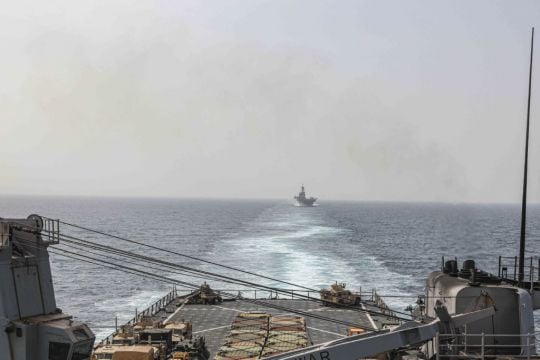
Navigating the Depths: Unveiling the Red Sea Battlefield
The Red Sea, historically a vital waterway, has witnessed numerous battles that transformed its azure expanse into a contested arena known as the Red Sea Battlefield. This article takes you on a journey through the tumultuous waves, exploring the historical events and maritime conflicts that have shaped the narrative of this strategic region.
Strategic Significance: The Genesis of Conflict
The Red Sea’s strategic significance as a gateway between continents has made it a focal point for geopolitical struggles throughout history. As nations sought to control trade routes and secure access to the Indian Ocean, the Red Sea became a natural battlefield where the interests of maritime powers collided, setting the stage for conflicts that echoed across its shores.
Naval Warfare: Tactics and Strategies Unleashed
The Red Sea Battlefield was a canvas where naval warfare tactics and strategies were tested and refined. Maritime powers deployed fleets, employing cunning maneuvers to gain control of critical chokepoints and secure dominance over the vast sea. The evolution of naval warfare in this theater showcased the ingenuity and adaptability of seafaring nations.
Forgotten Battles: Chronicles of Maritime History
Within the annals of the Red Sea Battlefield lie forgotten battles that have slipped through the cracks of mainstream historical narratives. These battles, though overshadowed by more prominent conflicts, played a crucial role in shaping the region’s destiny. Exploring these forgotten chapters unveils the untold stories of heroism and sacrifice on the high seas.
Turning Tides: Key Moments in the Red Sea
Key moments in the Red Sea Battlefield became turning points that altered the course of history. Whether through clashes between rival fleets or strategic engagements along the coastline, the outcomes of these battles reverberated far beyond the immediate theater of war, influencing the geopolitical landscape of the region.
Legacy of Conflict: Impact on Regional Dynamics
The legacy of the Red Sea Battlefield continues to influence regional dynamics. The aftermath of conflicts has left a lasting imprint on the relationships between nations along the Red Sea, shaping alliances, economic interests, and political alignments. Understanding this legacy is essential for comprehending the contemporary challenges faced by the nations bordering the Red Sea.
Exploring the Depths: Red Sea Battlefield Link
For a more in-depth exploration of the Red Sea Battlefield, including specific naval engagements and strategic maneuvers, click here. This link serves as a portal to unravel the layers of history that have shaped the maritime conflicts within the Red Sea.
Adaptation and Evolution: Lessons from the Battlefield
Nations navigating the Red Sea Battlefield were forced to adapt and evolve in response to the ever-changing tides of conflict. Diplomatic finesse, strategic prowess, and innovative approaches became essential for survival. The lessons learned during this tumultuous period continue to resonate in the strategies employed by modern nations facing maritime challenges.
Global Ramifications: Red Sea on the World Stage
The Red Sea Battlefield, while localized in geography, had global ramifications. The power struggles and alliances formed in the region had a ripple effect on the world stage, influencing international relations and shaping the trajectories of empires. Examining the broader implications adds a layer of complexity to the understanding of this maritime battleground.
Preserving Maritime Heritage: A Call to Remember
In conclusion, the Red Sea Battlefield serves as a reminder of the tumultuous history woven into the fabric of the region. It is a call to remember and preserve the maritime heritage that unfolded within its waters. By acknowledging the battles fought, the lives lost, and the strategies employed, we contribute to the collective memory of a region shaped by the ebb and flow of conflicts on its watery stage.
